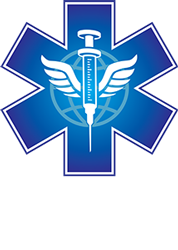
The world is falling dangerously behind in tracking the emergence of new COVID-19 variants by failing to scale up genomic sequencing of new cases quickly enough to keep track of the mutating virus. AIDS Healthcare Foundation (AHF) is calling on countries to cooperate and commit to reaching a global goal of sequencing at least 5% of all COVID-19 cases and consistently reporting the results within a week.
According to the Global Initiative on Sharing Avian Influenza Data (GISAID), the largest open access global platform that tracks genomic sequencing of SARS-CoV-2, currently only about 1.5% of all cases have been sequenced and reported to GISAID. While a handful of countries are doing well, for example Australia and Iceland have sequenced 58.6% and 57% of cases respectively, most countries are well below 5%, including many developed, industrialized nations. What’s worse, most reports that reach GISAID are woefully outdated – on average, from the time the data has been gathered, it takes countries nearly 78 days to submit it to GISAID. With a reporting lag of over 2.5 months, data this old severely undermines efforts to respond to a constantly changing virus.
“Genomic sequencing is critically important, because we are likely seeing the epidemiological picture develop on a significant time delay – the data that is available now is a snapshot of what was happening a month ago, or longer,” said AHF President Michael Weinstein. “If for example, a new variant is emerging right now in Jamaica, Peru, or Ukraine, we won’t know about it until next month. This is a matter of global health security, and the United States can play an important leadership role on genomic sequencing by stepping up these efforts domestically and helping other countries do so as well. Without timely global genomic sequencing data, we are flying blind and fighting yesterday’s war.”
AHF has begun funding genomic sequencing projects through its Global Public Health Institute at the University of Miami as a way to demonstrate how such a model can be rolled out quickly and efficiently. Since the launch earlier this year, the initiative has expanded beyond Miami. In response to a request for proposals on genomic sequencing, AHF received submissions from Mexico, Argentina, Brazil, Uganda, Kenya, India, Trinidad & Tobago, and Thailand, as well as expressions of interest from Jamaica, Philippines and Ukraine.
“We are funding genomic sequencing projects as a way to show that we are not only talking about it and demanding more action, but also doing it. One of the requirements for AHF funded grants is that the data must be shared with GISAID, so that everyone around the world can benefit from this knowledge,” said Dr. Jorge Saavedra, Executive Director of the AHF Global Public Health Institute at the University of Miami.
Prof. Mario Stevenson, a renowned virologist from the University of Miami and one of the recipients of an AHF grant characterized the importance of tracking emerging SARS-CoV-2 variants as a way of knowing one’s enemy. “The best way to fight an enemy is to know the enemy from the inside. Genomic sequencing allows us to know exactly how the coronavirus is changing, how it is likely to evolve and attack, and whether it is a variant of concern or a variant of interest that must be watched closely,” said Prof. Stevenson.


